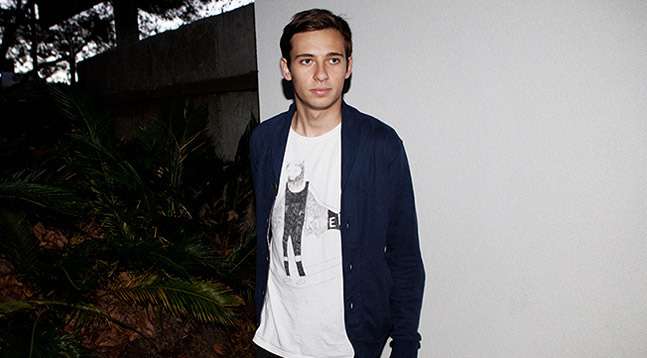
I was at a party in Venice Beach and I was like, Oh my god, I don’t feel like leaving straight away. I would end up drinking at every show, five days a week, on a three-month tour. “Before the show I’d have a few drinks, during the show, after – because I was constantly anxious. Inevitably, he soothed his anxiety with alcohol. This whole life was all about being in front of everyone and public speaking and all these things that really don’t come naturally to me.” I’ve never really been a performer but I had to do it. I’d say something funny and start to be like, ‘Oh, are you laughing because you found that funny? Or because you’re literally on my payroll?’”Īnd while Streten has always loved making music, he never enjoyed what comes afterwards. For months on end, all my interactions would be with people that I’m paying to be there. This neurosis extended to his working life: “I don’t have bandmates. “I’ve always got this super paranoid ‘why are you hanging out with me?’ thing in my head, trying to figure out if it’s status related,” he says. His tour schedule meant he was never in one place long enough to build genuine friendships as he became more and more famous, he began to feel wary of the people who clamoured to get close to him.

Streten – who is thoughtful but reserved and, by his own description, has struggled with social anxiety since he was teenager – always appeared out of place within the bro-ish, back-slapping dance music scene.

Streten is keen to stress that he is grateful for the opportunities he’s had, but the catapult to fame at such a young age was isolating. The bounties of his career have been a double-edged sword. “It was, honestly, one of the best years of my life,” Streten says. He just went to the beach, hung out with his dog and learned to be on his own. The global shutdown of the music industry meant that for the first time, he had no deadlines to meet, no tours to jet off on. He was newly single, after spending much of his adult life in relationships. Burnt out on cities and keen to remove himself from the temptations of alcohol and drugs, he decided to start again in northern NSW instead of returning to his home town of Sydney. Photograph: Amy Sussman/Getty Images for CoachellaĪfter a four-year stint in Los Angeles, Streten returned to Australia at the start of the pandemic to be closer to his family. ‘I’ve never really been a performer but I had to do it’ … Streten performing at Coachella in April 2022. I just didn’t know what I’d missed out on until I did have this time.” I didn’t really get to live my 20s, and I never thought about it like that before. “But after being here for a year, I started to have friends and a community, and I realised, oh, that’s what that void was. “I felt like there was something missing in life,” the now 30-year-old tells Guardian Australia over lunch at a pub near his house, Percy curled at his feet. He was widely hailed as a preternatural talent who pioneered a lush, layered electronic sound that has been often imitated, but never bettered. His second album, Skin, won him a Grammy in 2017, going to No 1 on the Australian charts and No 8 in the US. He was just 21 when he swept the Aria Awards with his 2013 self-titled debut, arriving on the red carpet in a stiff suit that made him look more like a kid at his year 12 formal than a multi-platinum musician. Photograph: Natalie Grono/The Guardianīefore he bought this sprawling, secluded property in early 2020, Streten had been on the go for almost a decade straight.

‘I felt like there was something missing in life’ … Streten at home.


 0 kommentar(er)
0 kommentar(er)
